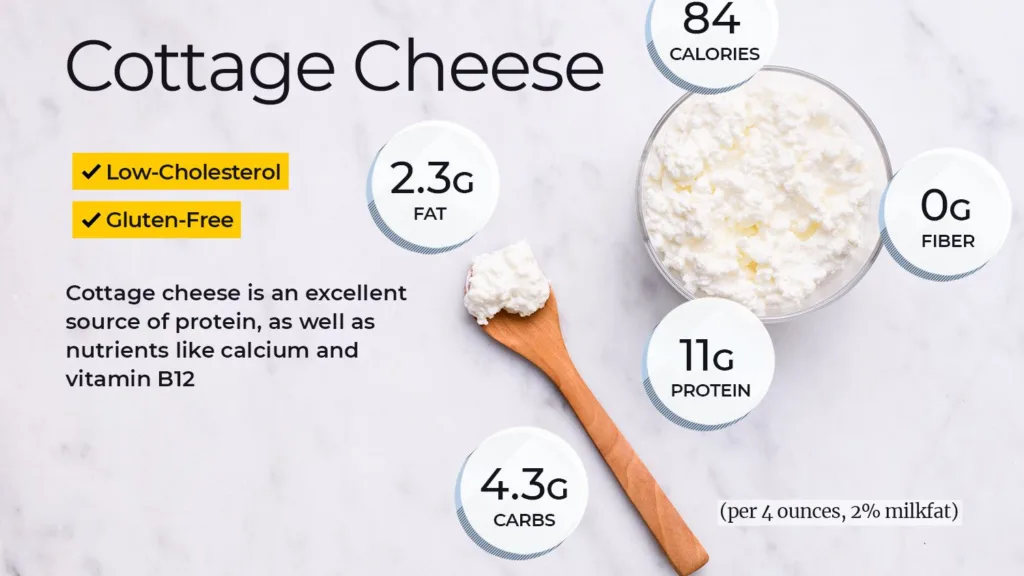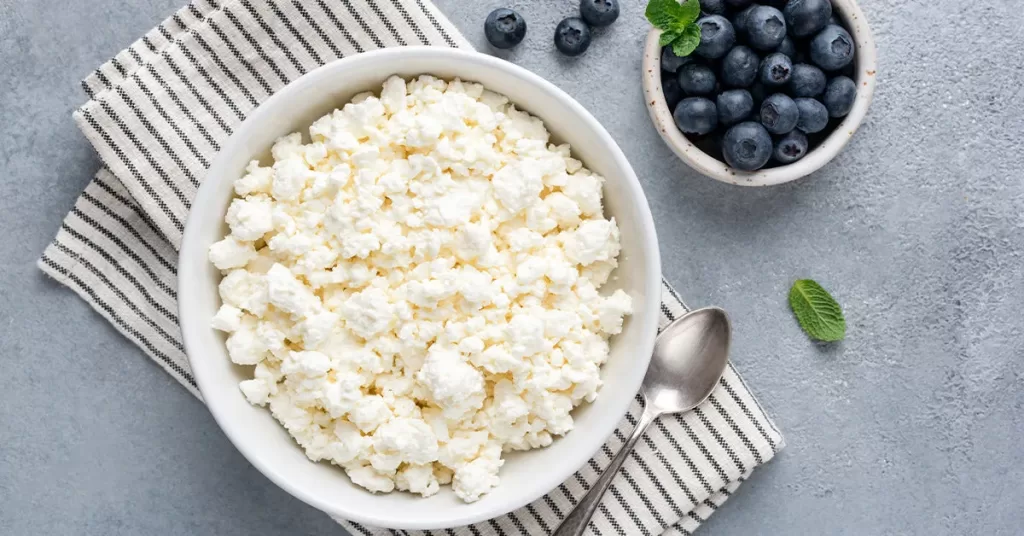Can Dogs Eat Paneer (Cottage Cheese)? If you would like to give a delicious crunchy treat to your dog’s diet, combining cottage cheese with his standard dry food can go a long way.
Table of Contents
It is important to remember to exercise in moderation when eating any delicious doggie meal supplements.
Lactose intolerance
Most dogs – and in that case cats – do not respond well to the sugar content of lactose in milk and other dairy products.
Although Paneer is actually dairy, it has undergone fermentation, which means its lactose content is lower than other dairy products.
Although very small amounts of paneer most dogs are perfectly fine, some may experience abdominal pain – say diarrhea and abdominal pain.
How To Make a Milk Lactose-Free? (Video)
Intake of cottage cheese or Paneer
According to the ASPCA, small and controlled amounts of Paneer are a completely convenient and harmless ingredient in your doggie diet.
Make sure the Paneer you give him does not exceed 10 percent of your daily diet. Moderation is very important.
Mix thoroughly one or two spoons of Paneer for a medium-sized dog, but not regularly. The skipping days may also be in order, say it could be twice a week.
Fat content

To control your puppy’s health and weight, the Humane Society of the Ochitas recommends that you use low-fat cottage cheese in your cutie meal.
This is especially important if your pet is on the heavy side.
Other supplements
Cottage cheese is not the only safe meal supplement you can put in your pouch’s dry diet. If your dog sniffs and shows a dislike towards cottage cheese, use other healthy and pet-friendly alternatives such as vegetables and cooked eggs.
Make sure the food is 100 percent safe for dogs before you try anything. For example, onions are toxic to dogs, so make sure they are nowhere near your baby’s food bowl.
If you are ever unaware of the safety of your pet in certain foods, consult your veterinarian first. If not, drive clearly.
Health Benefits of Cottage cheese or Paneer for dogs
There are currently no scientific research studies showing any particular health benefits specifically for dogs.
Also Read: German Shepherd Pomeranian Mix for your family and lifestyle.
Some cheese brands may contain probiotics or natural bacteria found in many fermented food products. Probiotics improve gut health in multiple dog studies.
Keep in mind that probiotics can have a huge impact on sick dogs or those who have just finished taking a course of antibiotics.
If you are interested in adding probiotics to your dog’s diet, it is best to consult your veterinarian to see if this is the right choice for your puppy.
Is cottage cheese or Paneer okay for dogs?
Cottage cheese, a beloved human delight, can also be a safe and beneficial treat for your canine companion. This article explores the advantages of sharing paneer with your dog, particularly in times of digestive distress. Discover how this protein-packed food can provide comfort and nourishment for your four-legged friend.
Cottage Cheese for Dogs: A Nutrient-Rich Indulgence
Cottage cheese, with its rich protein content and relatively low fat, can be a nutritional addition to your dog’s diet. Here’s why it’s more than just a tasty treat:
Digestibility and Comfort:
- Ideal for Upset Stomachs: A combination of paneer and white rice offers a bland yet nutrient-rich meal that’s gentle on your dog’s tummy during periods of digestive upset.
- Protein Source: Cottage cheese’s high-quality protein can aid in muscle repair and growth, making it suitable for active dogs.
Beneficial Nutrients:
- Calcium Boost: The calcium content in paneer supports bone health and teeth strength, contributing to your dog’s overall well-being.
- Probiotic Potential: Some paneer varieties contain live cultures that can introduce beneficial bacteria to your dog’s gut, promoting digestive health.
Moderation Matters:
- Occasional Treat: While paneer is advantageous, moderation is key. Incorporate it into your dog’s diet as an occasional treat rather than a daily staple.
Cautions and Considerations: Ingredients to Watch Out For
While Cottage Cheese for Dogs can offer health benefits, it’s essential to be aware of certain ingredients that may be harmful to dogs:
Additives and Flavorings:
- Sodium: Opt for low-sodium paneer to avoid excess salt intake, which can be harmful to dogs.
- Artificial Sweeteners: Steer clear of paneer products with artificial sweeteners like xylitol, which are toxic to dogs.
Lactose Sensitivity:
- While paneer generally contains less lactose than some other dairy products, monitor your dog’s response. Some dogs may still be sensitive to lactose.
Chart: Ingredients of paneer – Harmful and Beneficial for Dogs
| Ingredient | Harmful for Dogs | Beneficial for Dogs |
|---|---|---|
| Sodium | Excess Sodium Content | Low-Sodium Varieties |
| Artificial Sweeteners | Xylitol and Other Artificial Sweeteners | None |
| Lactose | High Lactose Content | Low Lactose Content (Varies by Brand) |
| Protein | – | High-Quality Protein Source |
| Calcium | – | Supports Bone Health and Teeth Strength |
| Probiotic Cultures | – | Promotes Digestive Health (If Present) |
FAQs
What’s the appropriate serving of cottage cheese for my dog?
The ideal serving of cottage cheese for your dog depends on their size, dietary needs, and any underlying health conditions. As a general guideline, offering a small amount, such as a teaspoon or two, as an occasional treat can be a safe introduction. However, consulting your veterinarian before incorporating cottage cheese into your dog’s diet is crucial to determine the suitable portion size for their specific circumstances.
What are the benefits of feeding cottage cheese to dogs?
Cottage cheese offers several benefits to dogs. It’s a protein-rich food that supports muscle development and repair. Additionally, the calcium content promotes strong bones and teeth. Some cottage cheese varieties also contain live probiotic cultures that can enhance digestive health by introducing beneficial bacteria into the gut. When used in moderation and following your veterinarian’s recommendations, cottage cheese can be a wholesome treat for your furry friend.
Between yogurt and cottage cheese, which is a more suitable option for dogs?
Both yogurt and cottage cheese can provide nutritional value to dogs, but their suitability depends on individual preferences and sensitivities. Yogurt contains probiotics that aid digestion, while cottage cheese is rich in protein and calcium. Choosing between the two can depend on your dog’s dietary needs and any lactose sensitivity they might have. Consulting your veterinarian can help determine which option aligns best with your dog’s health requirements.
What type of cheese is considered safe for dogs?
When it comes to cheese, options like low-fat, low-sodium, and unseasoned varieties are generally safer for dogs. Cottage cheese, mozzarella, and cheddar are often considered safe options in moderation. It’s crucial to avoid cheeses with added spices, herbs, and artificial flavorings that can be harmful to dogs. Always prioritize plain and simple cheese choices to ensure your dog’s safety and well-being.
Are there any cheeses that dogs should avoid?
Certain cheeses should be avoided due to their potential to cause digestive issues or pose toxicity risks for dogs. Cheeses with high salt content, added flavors, or artificial sweeteners like xylitol should be strictly avoided. Blue cheeses, Roquefort, and cheeses containing garlic or onions are also harmful to dogs. To prevent any adverse effects, it’s wise to stick to safe and plain cheese options and avoid those that might be potentially hazardous.
Which cheese is often favored by dogs?
Many dogs have a fondness for the mild and creamy taste of cottage cheese. Its texture and subtle flavor make it a popular choice among canines. However, every dog’s preference can vary, so observing your dog’s reaction to different types of cheese can help you determine their personal favorite. Remember, while cheese can be an enjoyable treat, it’s crucial to offer it in moderation and adhere to your dog’s dietary needs.
Conclusion
Dogs are highly lactose intolerant and so milk is not digested well for dogs, but cottage cheese is fermented and therefore contains very little lactose.
It is rich in calcium and protein and its mild taste makes it an ideal food for dogs to recover from stomach ailments.
Serve your own cottage cheese with regular dog food or as an occasional treat.
If your dog is in stomach pain or if you observe any other bad signs, mix equal parts of cottage cheese and cooked white rice or oatmeal for relief.

